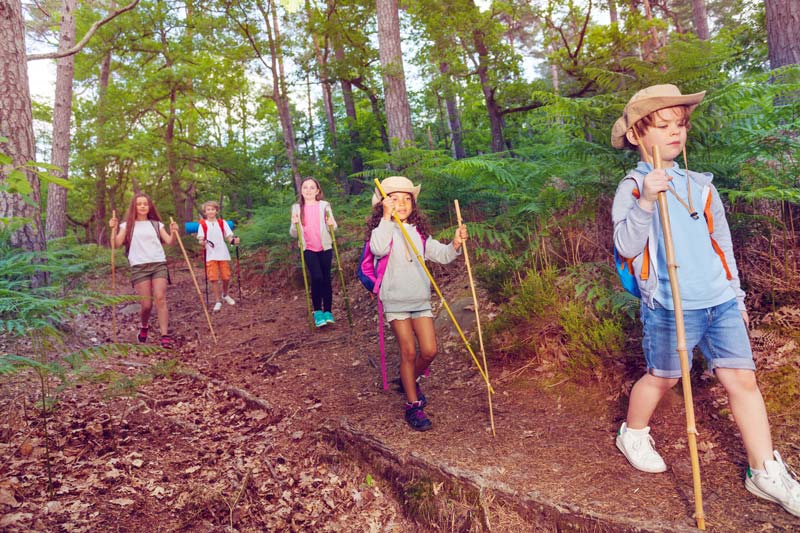We’re already two days into the official summer, so if your hunt for a summer job hasn’t already started, it’s time to get moving! Competition is high – especially with summer jobs for students – so the earlier you start, the best chance you have of landing a position.
For students, aside from putting some hard cash in your pockets, getting a job during the summer holidays is a great way to add valuable work experience to your CV. It doesn’t matter if that experience isn’t directly relevant: employers would rather hire someone who has proven themselves reliable and responsible, over someone who’s never even had to get up for work.
Get ready: polish your CV
Before you start searching through summer jobs boards, spend some time working on your CV. You might think that a CV is almost pointless given your lack of work history but there’s plenty that students can write on their CV to fill up the experience section – check out our guide to writing a student CV here. This video from Professor Heather Austin is also a great intro to writing a CV when you have little or no experience:
When writing your CV, a smart CV template with an easy-to-read font and plenty of white space will help your application stand out.
Tip: Our CV template collection has more than 200 free downloadable designs for you to choose from.
Find suitable vacancies
Here are some places you can find summer jobs:
- www.studentjob.co.uk/summer-job : lots of temporary/flexible holiday jobs with new positions added daily.
- E4S : aimed at students with a section devoted to holiday / part time jobs.
- Leisure Jobs : a great site for finding international job vacancies – earn some cash while soaking up the sun!
Think outside the box

Kids clubs and holiday camps offer plenty of opportunities at this time of year.
Whilst supermarkets and retail outlets won’t generally need more staff during summer compared with other times of the year, there are plenty of businesses that will. If you’re struggling to find suitable vacancies, think about the sort of businesses that might require more workers over the summer season. These include:
- Summer camps for kids (support staff for cooking, cleaning etc are always required)
- Outdoor adventure companies (again, even if you’re not qualified, support staff are always in demand over the busier season)
- Outdoor attractions
- Sports instruction
- Universities and education institutions (these often need help over the summer when regular staff are on leave)
- Holiday parks and camp sites such as Pontins and Butlins (security, kids club, support staff)
- Festival workers and events stewards – look out for the new trend of children’s festivals (find festivals here)
- Theme parks
- Children’s holiday clubs
- Cruise ships
- Jobs on yachts
Consider internships
If you’re looking for an internship to build experience rather than cash, an internship could be a great option for you. Some are paid, others are not – but the main benefit is that they allow you to gain experience with companies that you’re interested in working for which directly relate to your field of interest. These can make a huge difference to your CV when it comes to applying for a job in future.
An alternative way to gain experience is through freelancing – sites such as People Per Hour allow you to work directly for money, giving you both valuable experience for your CV and a source of income through the summer.
If income really isn’t important to you, volunteering will also provide you with work experience. In addition, you’ll gain skills that can be mentioned on your CV which are transferable to paid employment.
Take to the high street

Match your style and appearance to the retail store you’re targetting.
If it’s a job in retail you want, head straight to the high street with a pile of retail focused CVs in hand (well actually, pop them in your bag so you don’t look like you’re handing them out to anyone and everyone).
20 year old summer job seeker Courtney found success on Nottingham high street with this approach, landing a job at a high end retailer. She says:
“I think taking a CV in to a business gives you the chance to make a great first impression and puts a name to a face, giving you an advantage over candidates who apply online. I planned my outfit and make-up to be appropriate for the retailer I was targetting, and I handed my CV in – as it turns out, just at the right time as they were looking for someone. They really liked my style and attitude. and the fact that I had a good understanding of their brand.”
Use networking
Think of all the people you know who are already working, or whose parents, brothers, sisters, aunts, uncles and family members are already working! That’s a huge network of people who can put an ear to the ground for opportunities. Get the word out that you’re looking for summer work and ask people to keep you in the know.
Building a great LinkedIn profile is another way to effectively network. This can significantly boost your chances of an interview and provide prospective employers with a better picture of who you are. Here’s how to build a killer LinkedIn profile to complement your CV.
Tailor your CV
Whilst you’ve likely prepared a generic CV ready to send out, you’ll vastly increase your chances of landing a position by adjusting its content for each and every job application. Each company you apply to will have different skills and requirements that are important to them. You’ll boost your chances of being called for an interview by ensuring your CV focuses on those requirements. Learn more about tailoring your CV here.
Watch for scams

Job seekers aged between 18 and 24 are most likely to be targeted by this scam, with victims losing around £4,000 on average (Source: Which). As a best case scenario, you’ll lose your time applying to and working for a scam company that never pays you. According to Which?, fraudsters often recruit for a ‘dream job’, advertising roles with a starting salary of around £100,000 that require few qualifications, skills or experience. Which? explain:
“Sound too good to be true? Unfortunately, that’s because it most probably is. Job scams prey on hope. Looking for a new job can be both stressful and exciting with individuals eager to believe the perfect job is out there for them – even if it sounds unlikely or unrealistic. According to a survey carried out by Safer Jobs, 98% of respondents said that even if they were suspicious of a job advert, they would continue with an application despite feeling the job may not be legitimate. This could be due to people feeling overly hopeful or optimistic that despite suspicions, the job may still be real.”
Steer clear of job postings by unknown companies that offer an unrealistic sum of money for easy work, or a fast promotion to management level. Use Which?’s guidelines and this helpful list by Scamwatch to help you decide if something is a scam.

I’m looking for summer work and there are some good titbits in this article, thank you 🙂
I quit my job and went to work for a business that had a ‘local office’ – it was on the street trying to get people to sign up for stuff, they recruited quite a big team of us with really good pay promised. I thought it was a bit strange as they didn’t really ask much at the interview, it felt a bit too easy. I did all the training on my own time and worked for them for several days making quite a lot of sales before they said I wasn’t good enough and let me go. They did pay me for the days I actually worked but I’d lost my previous job to work for them and also wasted time training on my own time. Although not strictly a scam, they just hire loads of people and pick the best. So think carefully about leaving your job to work for a company that doesn’t really do a proper interview, they are just testing you out and will let you go if you don’t meet their (really difficult) targets, and you will have quit your previous job for nothing.
There are some helpful tips in this guide, thank you.